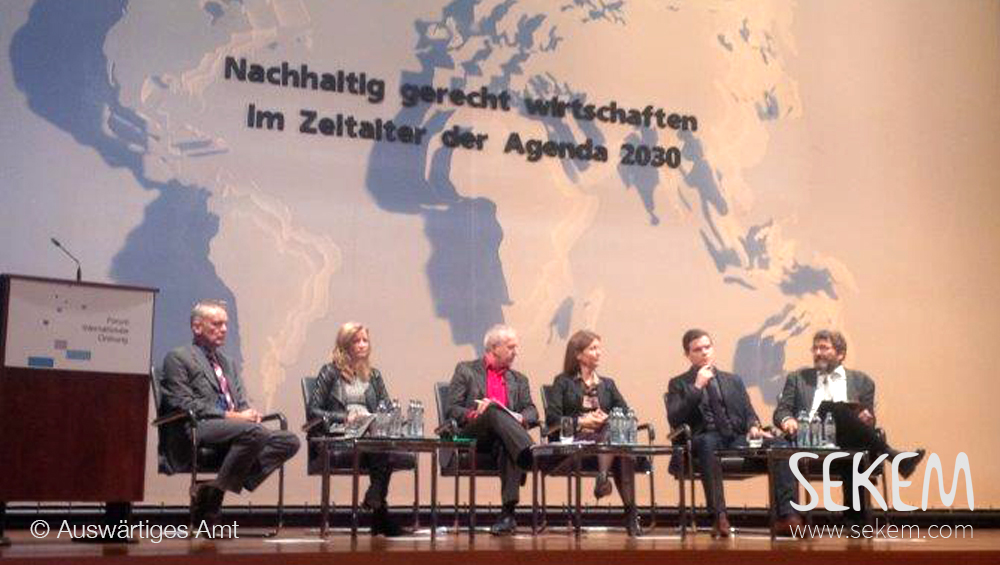“An ambitious global transformation program that opens up perspectives for a better life for millions of people”, said German Foreign Minister Frank-Walter Steinmeier on the Agenda 2030 for Sustainable Development. On the 10th of November he held the opening speech on the event “Sustainable Fair Economic Activity – Entrepreneurship in the Age of the Agenda 2030” in Berlin. The participants discussed the challenges, possibilities and limits of nongovernmental actors, such as the economy, science and civil society, in the course of the 17 Sustainability Goals of the United Nations (UN). The political goals were published by the UN last year to promote sustainable development at the economic, social and environmental levels in all countries around the world.
But how is the private sector involved as effectively as possible? Companies create jobs and income and therefore perspectives for people in developing countries. With the private sector in mind, the question is not really whether companies can really be partners for development, but rather, which investments are pushing development and whether these really make sense. The German Entrepreneurial Development Cooperation (DEG), a long-term partner of SEKEM, organized the event on the base of these and other questions within the framework of the “International Order Panel in cooperation with the Berlin expert talks on globalization “ in collaboration with the Ministry of Foreign Affairs.
“The role of the private sector is absolutely crucial for achieving the Sustainable Development Goals.”
Maximilian Abouleish-Boes, Head of SEKEMs Sustainable Development Department, took part in the panel discussion for SEKEM and exchanged views on the Goals of Sustainable Development in the private sector with national and international representatives. On this occasion Abouleish-Boes called for a paradigm shift in companies and drew attention to problems: “The role of the private sector is absolutely crucial for achieving the Sustainable Development Goals as it determining for a transformation of society. But two things remain critical: Firstly, the private sector has to work hand in hand with the civil sector and get support by the government. Secondly, the core business of companies needs to be aligned towards satisfying social needs instead of only maximizing profit.” The SEKEM representative emphasized his pride to present with SEKEM an example, which supports social innovations even under difficult conditions.
For almost 40 years SEKEM has been following a number of the Sustainability Goals published by the United Nations in the past year and can therefore serve as a role-model. Through the holistic approach the initiative has also been supporting cooperation between the state, private and civil sectors.
Sherif Abou El Naga
SEKEM is committed to all Sustainability Goals of the United Nations
German-African Agribusiness Forum: Opportunities along the value chain
The responsibility to change the way humans live on earth: SEKEM at COP 12
SEKEM Sustainability Report 2015
The Sustainable Development Goals of the United Nations

